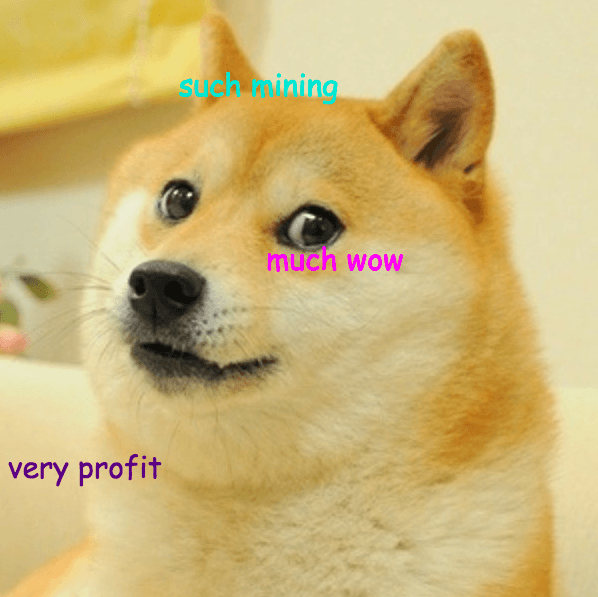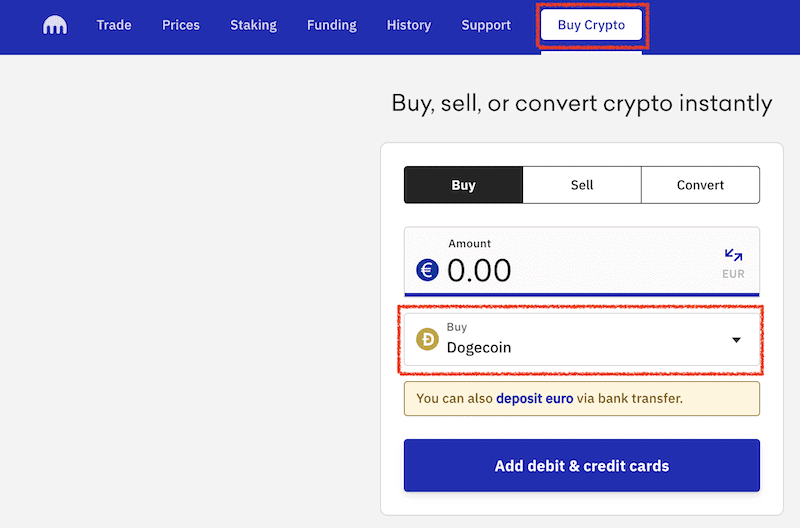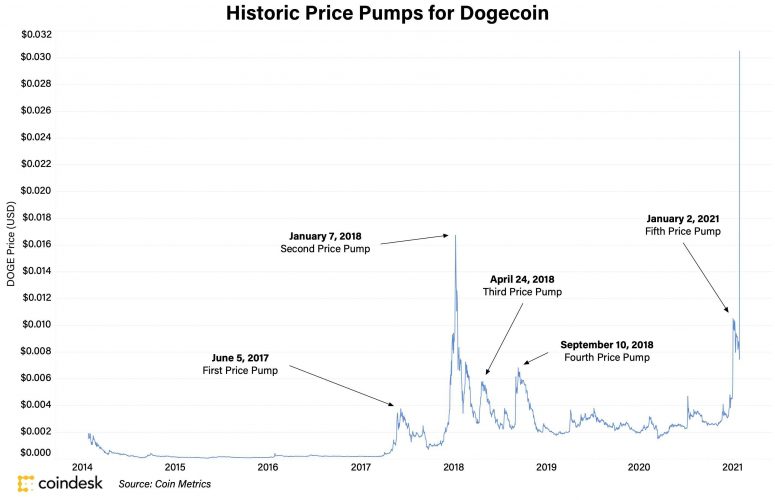Dogecoin is a cryptocurrency, like Bitcoin or Ethereum—although it’s a very different animal than either of these popular coins.
Dogecoin was originally created at least in part as a lighthearted joke for crypto enthusiasts, and took its name from a once-popular meme.
Despite this unusual origin story, it has exploded in popularity in 2021—as of writing, Dogecoin has become the fifth largest cryptocurrency by market cap.
What is Dogecoin?
Software engineers Billy Marcus and Jackson Palmer created Dogecoin in late 2013. Palmer branded the cryptocurrency’s logo using a meme popular at the time that featured the deliberately misspelled word “doge” to describe a Shiba Inu dog.
“Doge was really started to poke fun at Bitcoin,” said Pat White, CEO of Bitwave. In its early days, a community of enthusiasts arranged publicity stunts to raise Dogecoin’s profile, gathering funds to send the Jamaican Bobsleigh team to the 2014 Olympics, for instance, or sponsoring a NASCAR driver.
In early 2021, Dogecoin gained cult status on Reddit’s WallStreetBets message board—the prime instigator behind the GameStop affair in January—where enthusiasts had promised to propel its value “to the moon” (that was before all discussion of crypto was banned on the subreddit).
Today Dogecoin is no joke, having exploded in value and gained more than 5,000% in 2021. Among its boosters is Tesla CEO Elon Musk, who called Dogecoin his favorite cryptocurrency. Musk also named Dogecoin the “people’s crypto,” and promised to plant a physical Dogecoin token on the moon.
How Does Dogecoin Work?
Dogecoin is a cryptocurrency that runs on blockchain technology, similarly to Bitcoin and Ethereum. Blockchain is a distributed, secure digital ledger that stores all transactions made using a decentralized digital currency.
All holders carry an identical copy of the Dogecoin blockchain ledger, which is frequently updated with all new transactions in the cryptocurrency. Like other cryptocurrencies, Dogecoin’s blockchain network uses cryptography to keep all transactions secure.
People called miners use computers to solve complex mathematical equations in order to process transactions and record them on the Dogecoin blockchain—a so-called “proof of work” system.
In exchange for processing transactions and supporting the blockchain ledger, miners earn additional Dogecoin, which they can then hold or sell on the open market.
Dogecoin may be used for payments and purchases, but it’s not a very effective store of value. This is chiefly because there is no lifetime cap on the number of Dogecoins that may be created by mining—meaning that the cryptocurrency is highly inflationary, by design.
The blockchain rewards miners for their work by creating millions of new Dogecoins every day, which makes it very challenging for speculative price gains in Dogecoin to hold up over time.
How to Buy Dogecoin
You can buy Dogecoin on a cryptocurrency exchange like Binance or Kraken. The exchanges require you to set up and fund an account with U.S. dollars or crypocurrency.
You then are able to buy and exchange cryptocurrencies, including Dogecoin. Notably, leading crypto exchange Coinbase does not support purchases of Dogecoin.
Some online brokers, including Robinhood and TradeStation, also allow you to buy Dogecoin—in addition to conventional assets like stocks, mutual funds and bonds. They don’t offer as many of the cryptocurrencies as exchanges, but Dogecoin is generally available.
As with other cryptocurrencies, once you’ve purchased Dogecoin it’s best to move your coins to a crypto wallet.
Wallets take many forms, from online services offered by exchanges like Coinbase (while you can’t buy Dogecoin on Coinbase, you can store it in your Coinbase wallet), to apps on your mobile device or even a physical hard drive.
You secure the wallet with a private password. Since your coins are held outside of an exchange, there’s an extra layer of protection against hacks.
Before Dogecoin broke out into the mainstream and rocketed higher in price, you used to be able to earn free coins for doing basic tasks online.
“For many years, you could perform tasks at Dogecoin ‘faucets’ to earn Dogecoin instead of buying it,” said C. Neil Gray, partner in the fintech practice areas at Duane Morris LLP.
“The tasks included things like watching an advertisement or taking a survey. More recently, it’s become difficult to find any that work.”






